How should a Jew respond to ‘Merry Christmas’?
When I speak with my Christian friends, I have no problem acknowledging their holiday in my seasonal salutations. Even awkward interactions can lead to shared warmth in a respectful community.
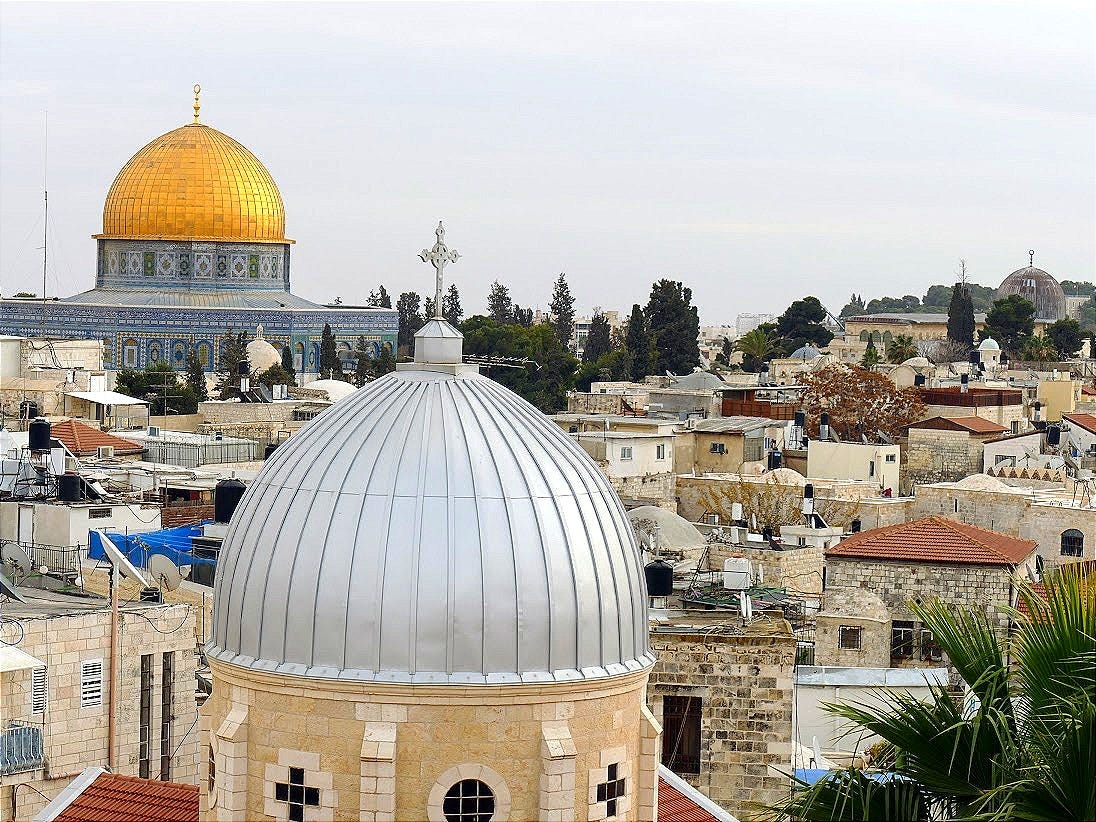
Here’s a question I am often asked.
Q: It’s that time of year, when everyone everywhere is saying “Merry Christmas” to me, even people who know that I am Jewish. Should I simply smile and repeat the greeting or politely correct the greeter and say, “I’m sorry, I don’t observe Christmas”?
I’ve written about this before, but at a time of increasing antisemitism and frayed nerves on all sides, it’s a conversation that never gets old. It needs to be had early in December every year, at least until the Messiah comes (or, as some might prefer, comes back…).
A reminder: If all politics is local, as Tip O’Neill loved to say, so is political resistance. Those who want to drive people apart, who seek to promote hate and suspicion, can best be resisted at the local level, with every interaction, and that begins with a simple greeting on the street. Defeating Trumpism begins with simple human decency.
As Albert Camus wrote in The Plague:
“A loveless world is a dead world, and always there comes an hour when one is weary of prisons, of one's work, and of devotion to duty, and all one craves for is a loved face, the warmth and wonder of a loving heart.”
That loved face, that loving heart, needs to be us. And that is what will overcome the spiritual death that autocracy craves.
Along with my response to the “Merry Christmas” question, I’m including in this posting photos I’ve taken in Jerusalem during this December holiday season, demonstrating the spirit of coexistence that can and often does exist there - even now - as well as here. I particularly love this photo below taken at the Western Wall (what is that guy sitting on the right saying on his phone?), as well as the pre-Covid, pre October 7 shots of the crowds in the marketplace - people from all over the world brought together by dreams of peace and unity - and those photos of the rooftops of the city, many taken from the most peaceful spot in all of Jerusalem (with the best strudel to boot), the roof of the Austrian Hospice.
So, here’s my reply to the question:
First of all, it’s sad that it even has to be asked. It makes me understand why Lenny Bruce said that Christians celebrate while Jews observe***. Jews never get to be happy, even at this most celebratory time of year. We’re always observing. And in December, Jews are especially observant of our minority status, while agonizing over how to find our little niche amidst this annual Yuletide cultural bombardment.
So here goes:
There is nothing wrong with Jews wishing non-Jewish neighbors “Merry Christmas,” just as it would not be a betrayal for Christians to wish someone Jewish “Shabbat Shalom” when leaving work on Friday afternoon.
The Shulchan Aruch (Yoreh Deah, 148,9) notes the need for being good neighbors in a society where Jews and non-Jews mingle and do business together, even regarding problematic greetings. The authoritative, 16th century law code states,
It is forbidden to go into an idol worshipper's house on his festival day to great him with a "Shalom," but outside his house it is permitted. Still, one should [none the less] not give an over-enthusiastic greeting.
OK, a little passive-aggressive concession to centuries of mistrust there. But what prevails is that it’s all done for the sake of peace and is based on a Talmudic passage (Brachot 17a) stating:
One must fulfill the verse: “A soft answer turns away wrath” (Proverbs 15:1) and take steps to increase peace with one’s brethren and with one’s relatives, and with all people, even with a non-Jew in the marketplace, so that he will be loved above in God’s eyes, pleasant below in the eyes of the people, and acceptable to all of God’s creatures. Tangentially, the Talmud mentions that they said about Rabban Yoḥanan ben Zakkai that no one ever preceded him in issuing a greeting, not even a non-Jew in the marketplace, as Rabban Yoḥanan would always greet him first.
Yohanan Ben Zakkai would have had trouble keeping up with the sea of diverse humanity I met in the Old City on Christmas Eve a few years back - especially since he was spirited by his students out of wartime Jerusalem in a casket.
See also this passage from the Talmudic tractate Gittin 62a. It shows how the rabbis really struggled with the idea of reaching out to non Jews at a time of rampant persecution, but the prevailing position was to encourage friendly interaction, even gestures that might be uncomfortable and risky, and to do it “mipnay darchai shalom” “for the sake of peace.”
The mishna teaches that one may extend greetings to gentiles on account of the ways of peace. The Gemara asks: Now that it is taught that one may assist them, is it necessary to say that one may extend greetings to them? Rav Yeiva said: This halakha is necessary only on their holidays…
The objective has always been to reduce tensions, not to increase them, and especially on holidays, when so many people of all backgrounds are mingling in the marketplace.
This Nigerian gentleman and I took simultaneous photos of one another, then smiled and moved on with our day. A perfect un-selfie reciprocal snapshot for the 21st century. It’s not the kind of greeting Rav Yeiva could have imagined.
It’s even OK in halakha (Jewish practice) to mention a holiday whose name includes the name of a foreign deity. At least it is in this case, since the word “Christ” is not really a name at all, but the Greek translation of the Hebrew term for “Anointed One.” If the holiday were called “Jesus-fest” or “Zeus-mas,” there might be cause for concern. So when I speak with my Christian clergy colleagues, I have no problem acknowledging their holiday in my seasonal salutations.
Ironically, Jews tend not to label our festivals when extending greetings. We traditionally just say “Happy Holiday” (“Hag Sameach” in Hebrew or “Gut Yomtov” in Yiddish). The exception to that rule happens to be Hanukkah. We say “Hag HANUKKAH Sameach” in order to distinguish this minor non-biblical festival from the more significant biblically mandated holidays.
Here are some more views from the Austrian Hospice rooftop. If the buildings and prayer shawls all seem to be able to get along, why can’t we?
A greeting should be seen as a verbal embrace, the extension of blessing, rather than as an assertion of xenophobic power. In a perfect world, “Happy Holidays” would not be seen as a cheapening of the meaning of Christmas, but as an enhancement of its deepest spiritual message.
But as we all know, this is far from a perfect world. We are living at a time when any slight verbal utterance can be interpreted as an uttered verbal slight. Someone wishing me a “Merry Christmas,” knowing that I am a rabbi, must ipso facto be antisemitic.
Right?
That’s how far down the “rabbi hole” we’ve gone.
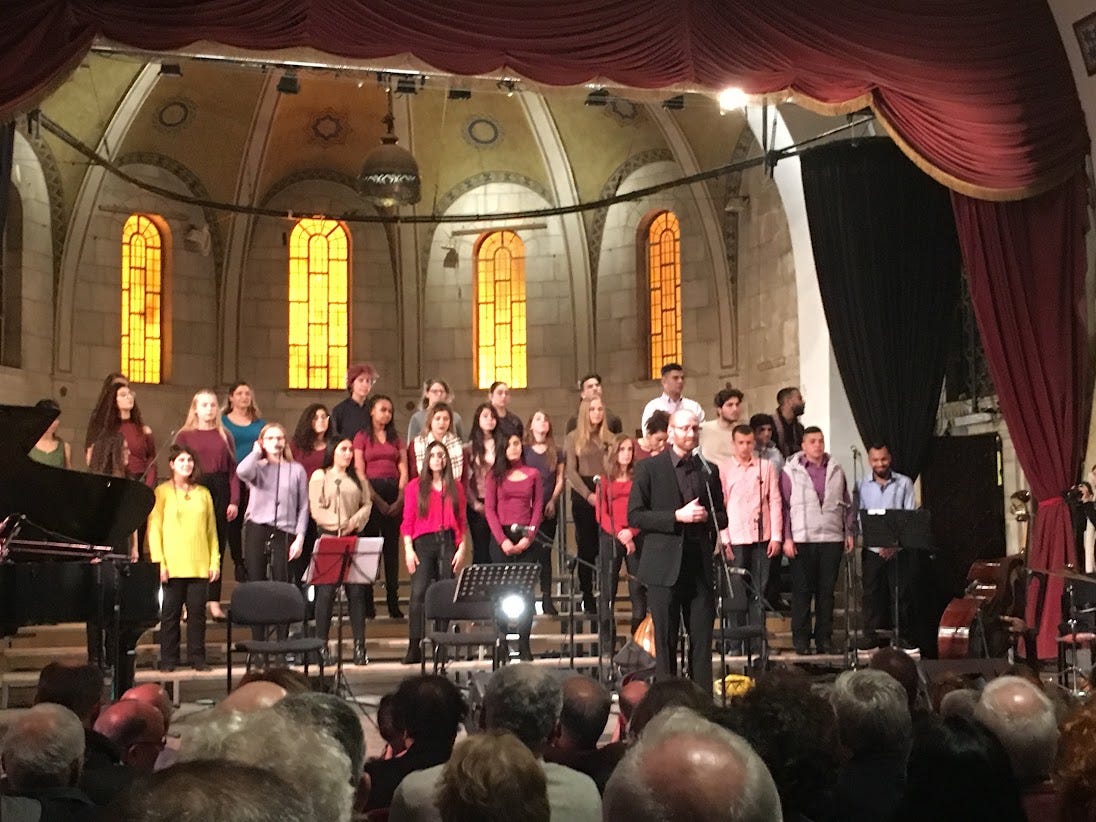
So, let’s try to get beyond the clichéd salutations that have backed everyone into a corner. If you are Jewish and feel that someone is deliberately trying to impose upon you the hegemony of Christmas (and by extension Christian nationalism), wishing you a “Merry Christmas” with a telltale snicker, let’s look for a reply that is both respectful of diversity yet deeply spiritual, something that could be uttered simultaneously to Jon Stewart and Sean Hannity without blinking an eye.
Here are my nominations:
“Wishing you a Blessed Season!” (I dunno. Reciting candle blessings is central to the Hanukkah ritual, but these holidays are more about miracles than mere blessings. Blessings are for Thanksgiving.)
“May the Light Increase” (Sounds a bit too Star Warsy)
“Peace” (A little too ’60s, especially if you are wearing a Nehru jacket)
“May the miracles of days of yore inspire miracles in our day as well.” (No one has used the word “yore” since, well, yore.)
“Shalom.”
Hmm… If you think about it. Shalom is perfect. These days, everyone knows what it means – like mensch and chutzpah. The reply is spiritual, identifiably Jewish yet increasingly universal. You’ll hear more Shaloms uttered at a Christian Zionist conclave than in the hallways of the Knesset, where the politicians are more likely to be spitting at one another than wishing for peace.
So the next time someone who knows you are Jewish (if you are) says “Merry Christmas” just to get a rise out of you, take the high road and elevate the conversation by replying “Shalom.”
Interestingly, David Sperling, an Orthodox rabbi, does not completely agree with that choice of greeting, and for a surprising reason. “Shalom,” you see, aside from meaning “hello,” “goodbye” and “peace,” is also a Jewish name for God.
He writes, quoting a passage I mentioned above:
The issue of sending greetings to a non-Jew on their religious holidays is mentioned in the Shulchan Arukh (Yoreh Deah, 148,9), where it says, "it is forbidden to go into an idol worshipper's house on his festival day to great him with a "Shalom," but outside his house it is permitted. But one should [nonetheless] not give an over-enthusiastic greeting." The commentators there discuss whether this law is limited to using the word "Shalom," or all greetings. The ruling is that one may give greetings which do not include the word "Shalom" as it is one of the names of G-d, but rather use wording such as "Good Day", "Long Life!", "Good luck in everything" etc. So, it would be best for you to send "Holiday Greetings", or "All my love over the holidays!" rather than either using a greeting with G-d's name in it.
Still, no need to overcomplicate matters. Right now, life is complex enough as it is!
And we are fighting for a higher cause. Every human act, every kind interaction is a step away from the hellscape of hate that some wish our country to become.
If it’s simply a matter of responding to a total stranger, on the street, movie theater or supermarket, wishing you an M-C, replying either “Merry Christmas” or “Happy Holidays” would be fine. Let’s assume the other person is reaching out with genuine congeniality. Any reply is OK as long as it is also well intentioned and the neighborly spirit is willing.
Anything but, “Oy vey. My children never call!”
How would you handle these occasionally awkward seasonal interactions. Click the button below and share your advice!
Below is one way to deal with the season. Send a card with chopsticks. Click here for some more suggested cards from Etsy:
And finally, Lenny Bruce’s classic Jewish and Goyish routine ***
Celebrate is a goyish word. Observe is a Jewish word. Mr. and Mrs. Walsh are celebrating Christmas with Major Thomas Moreland, USAF (ret.), while Mr. and Mrs. Bromberg observed Hanukkah with Goldie and Arthur Schindler from Kiamesha, New York.




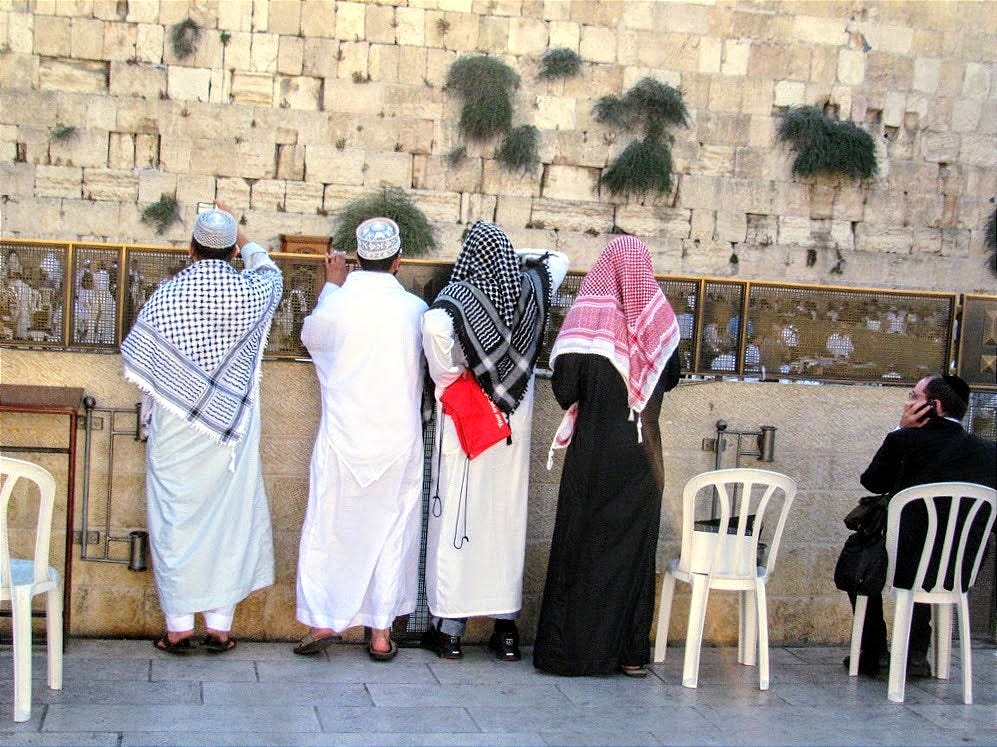
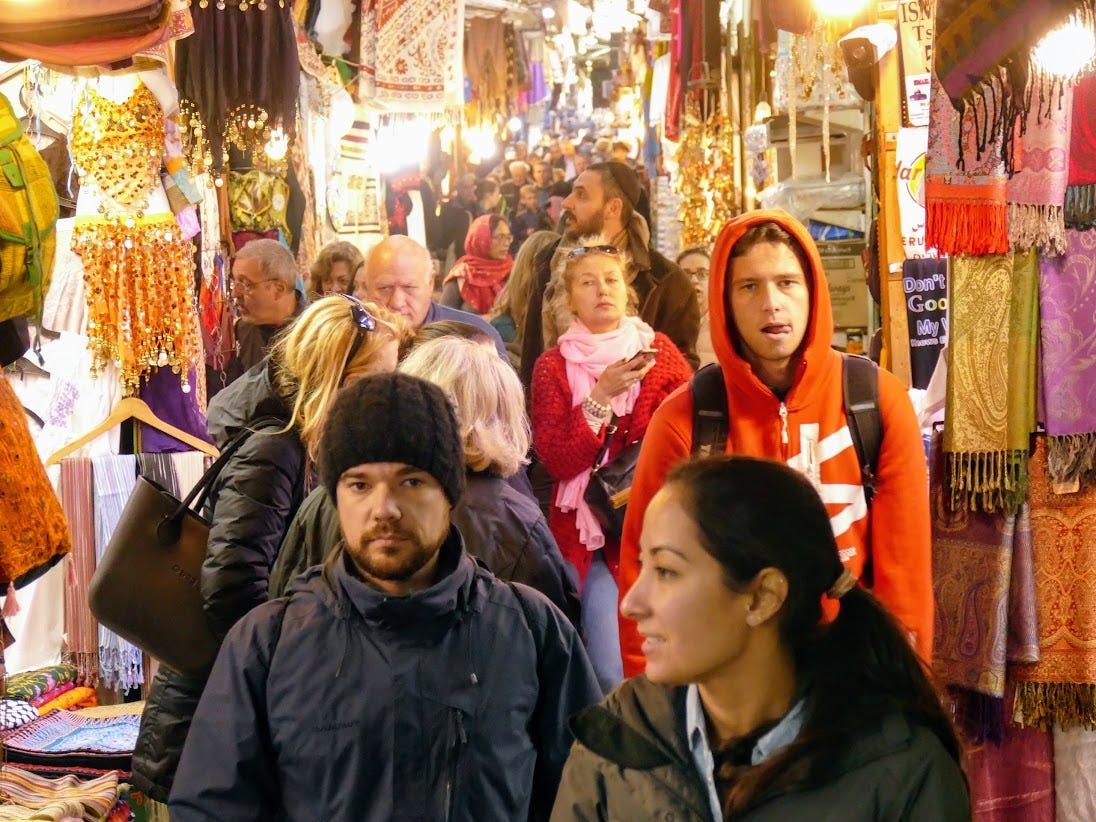

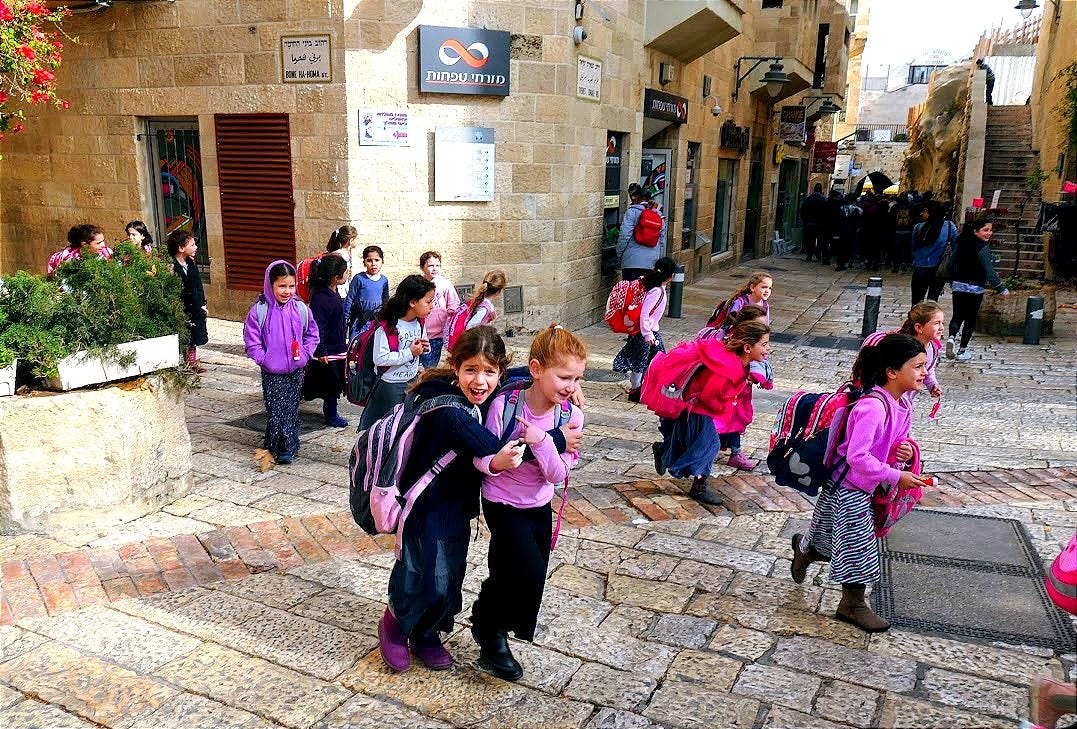
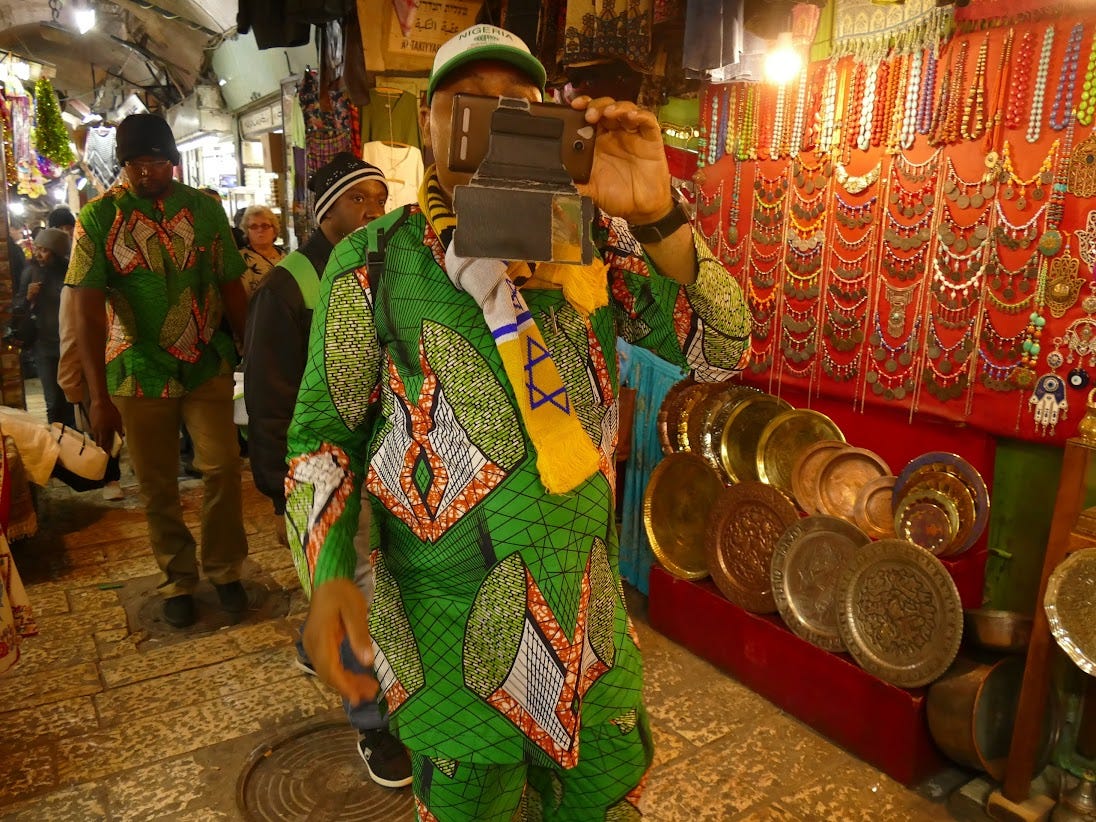
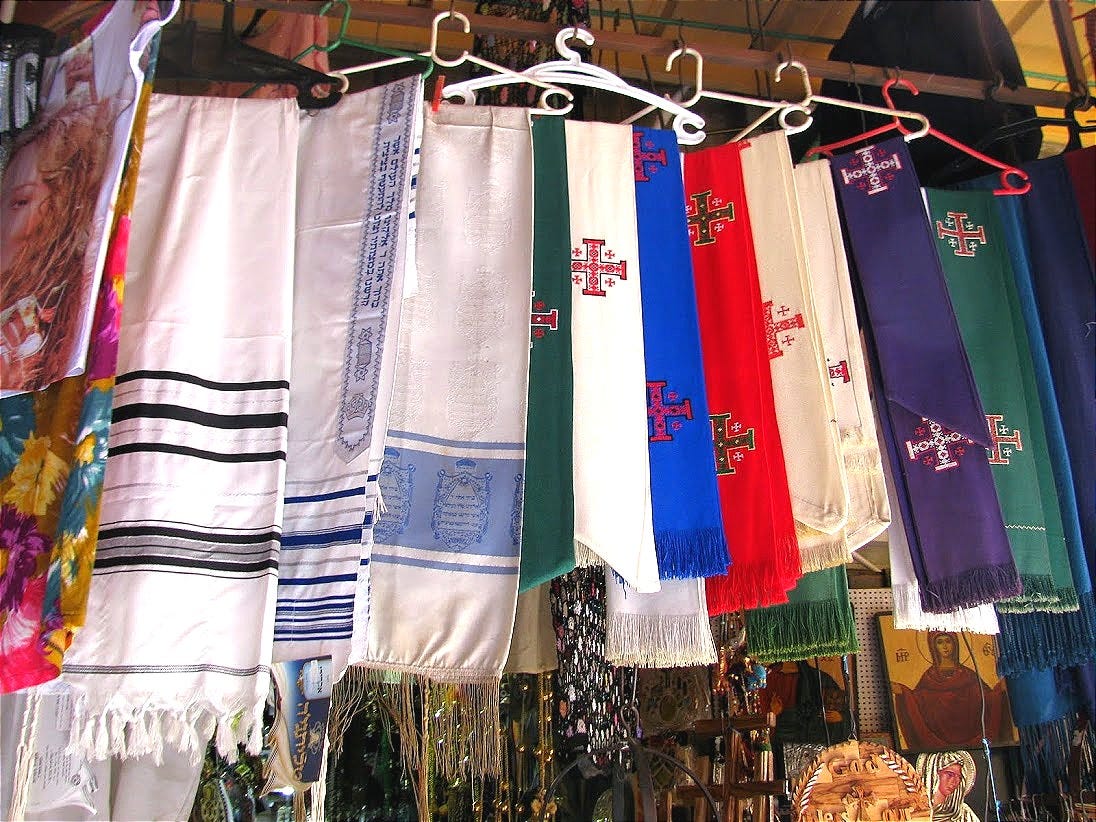
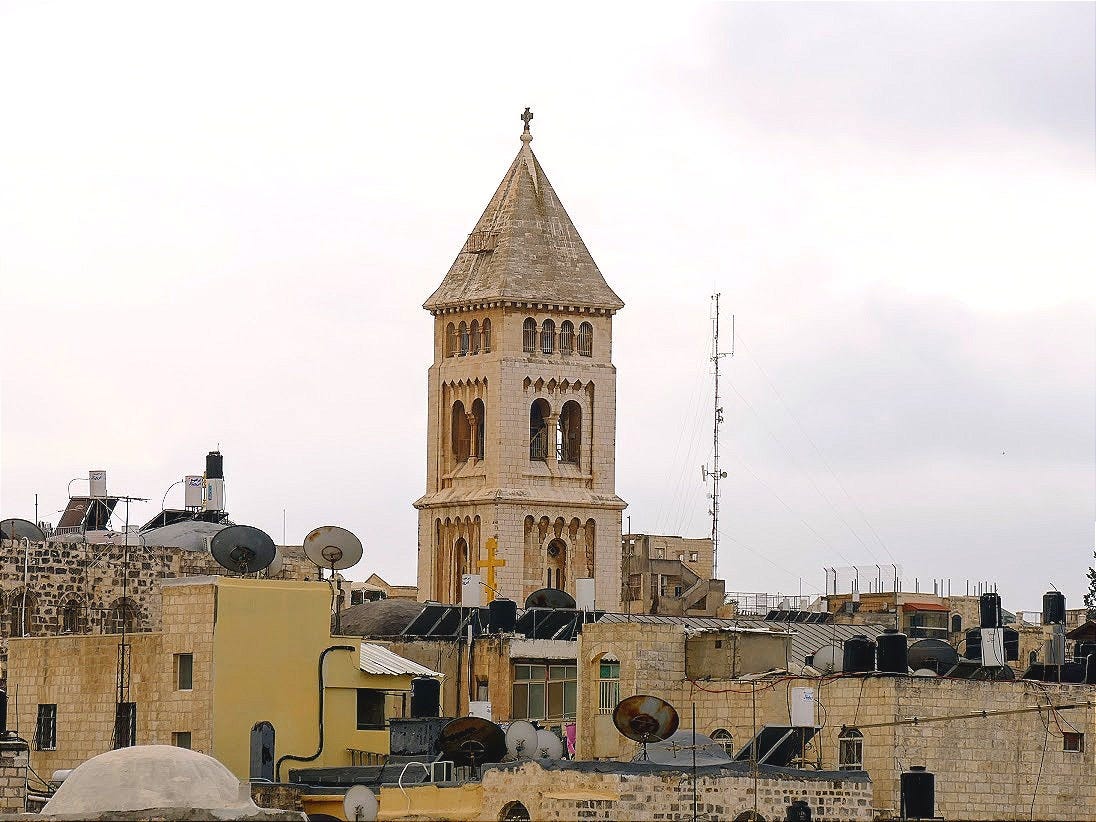
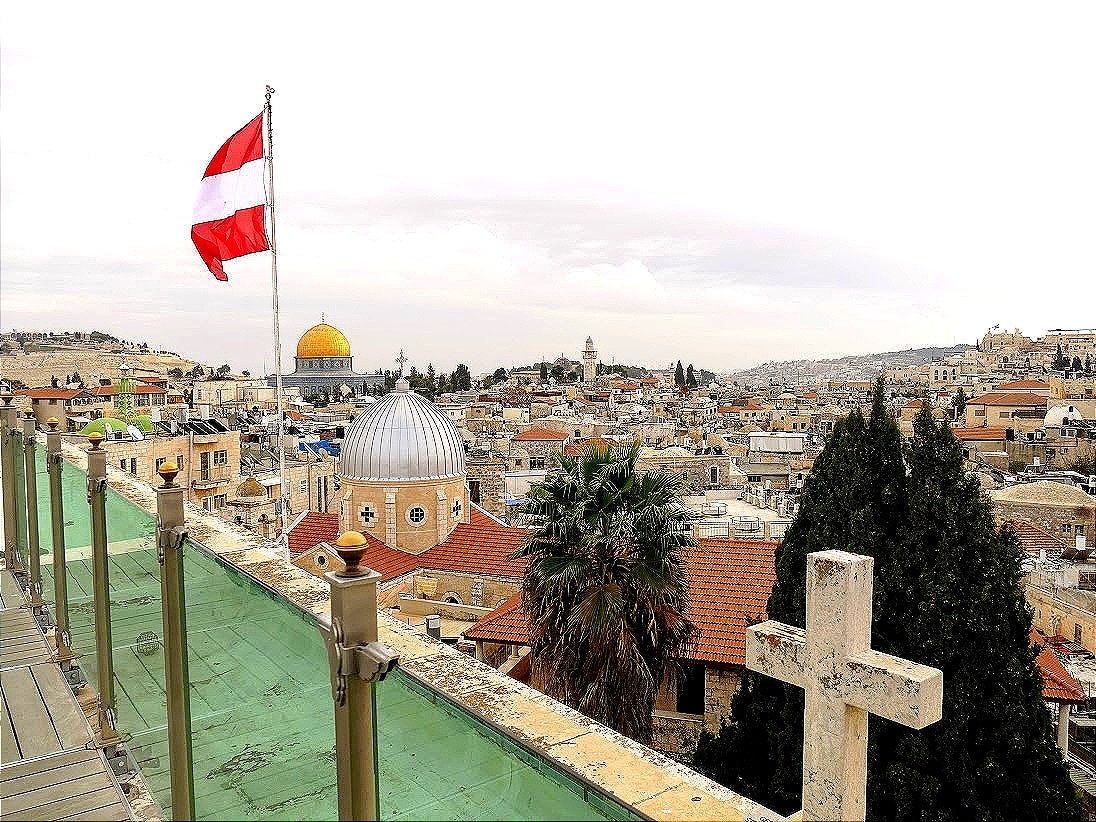



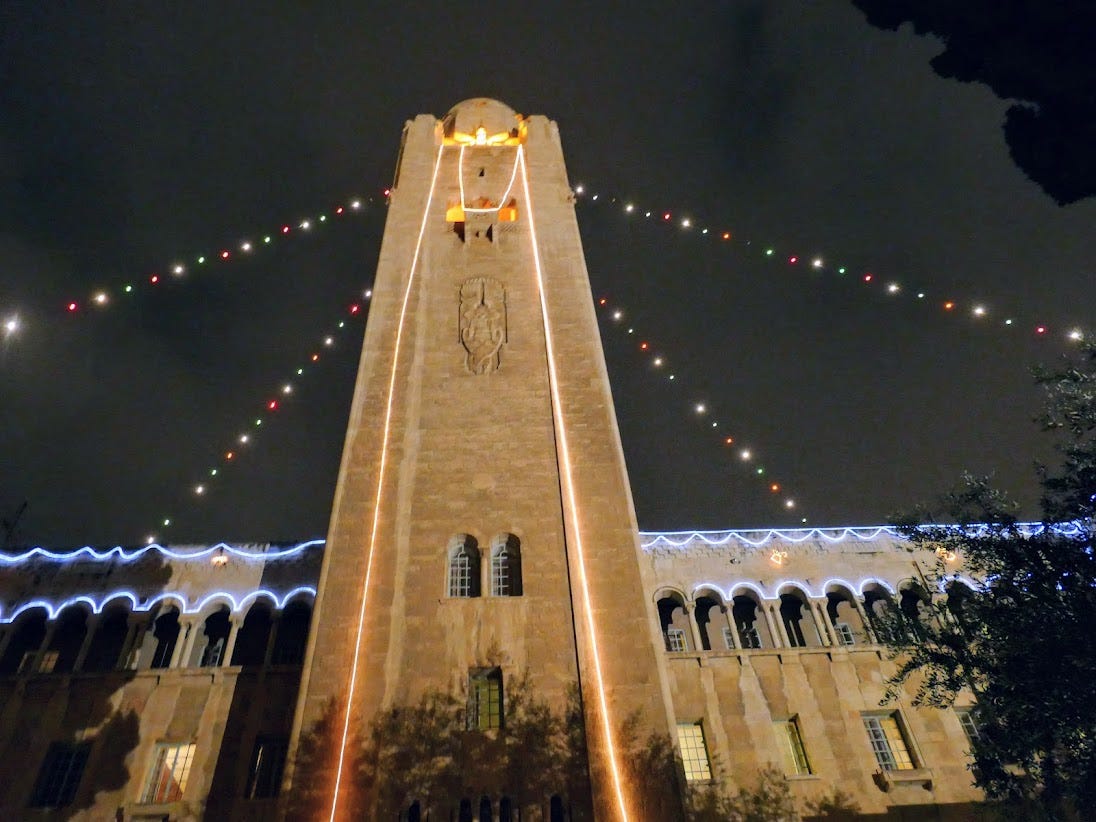
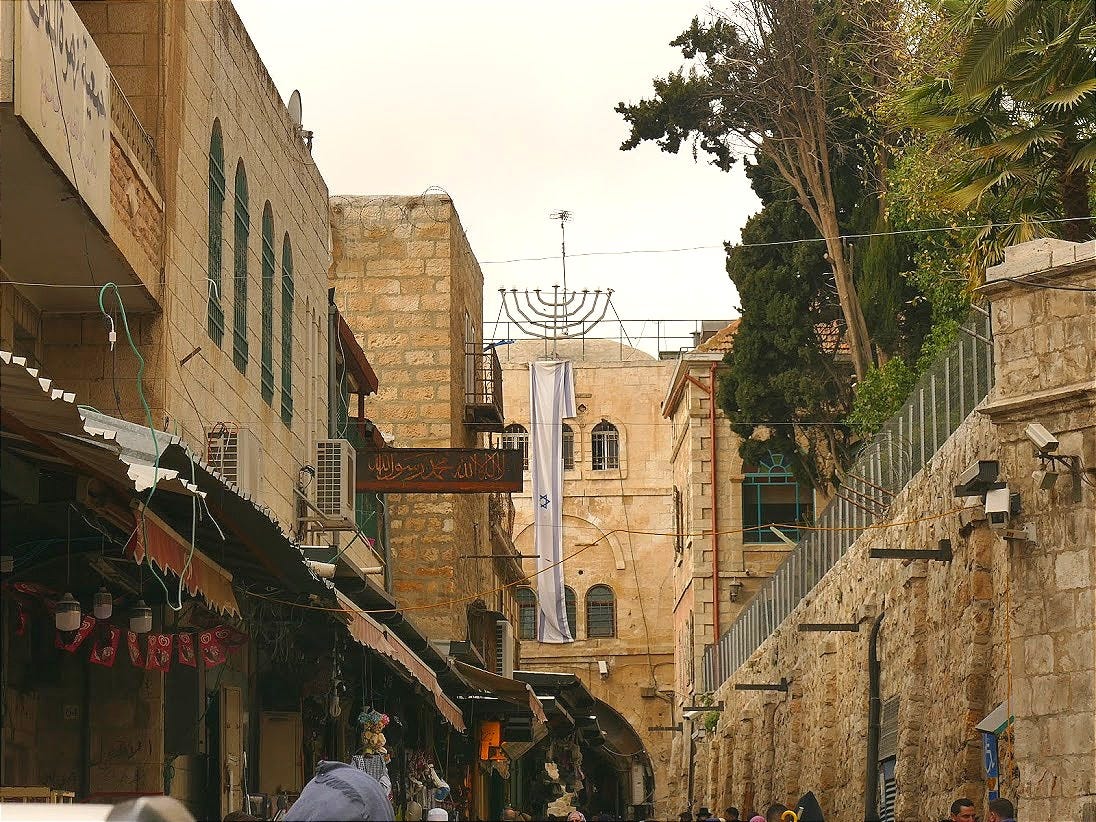

I hear your pain, Mark and Joan. Still, I firmly believe that most people are not petty, bullying Grinches. I've experienced great sensitivity from my Christian clergy colleagues, who admittedly tend to be more on the progressive side. Some would go to excess even to remove Jesus' name from interfaith services, when I would be totally fine with each religion conveying its message authentically. So until it happens a second time with car dealer, Joan, let's give the benefit of the doubt and assume she was just caught off guard (I suspect she doesn't encounter too many Jewish customers) and might even have felt badly that she may have greeted you improperly, which would explain the chilly reply. I'm probably wrong, but it feels better to assume the best of people.
I usually say “Thanks. Merry Christmas to you too.”